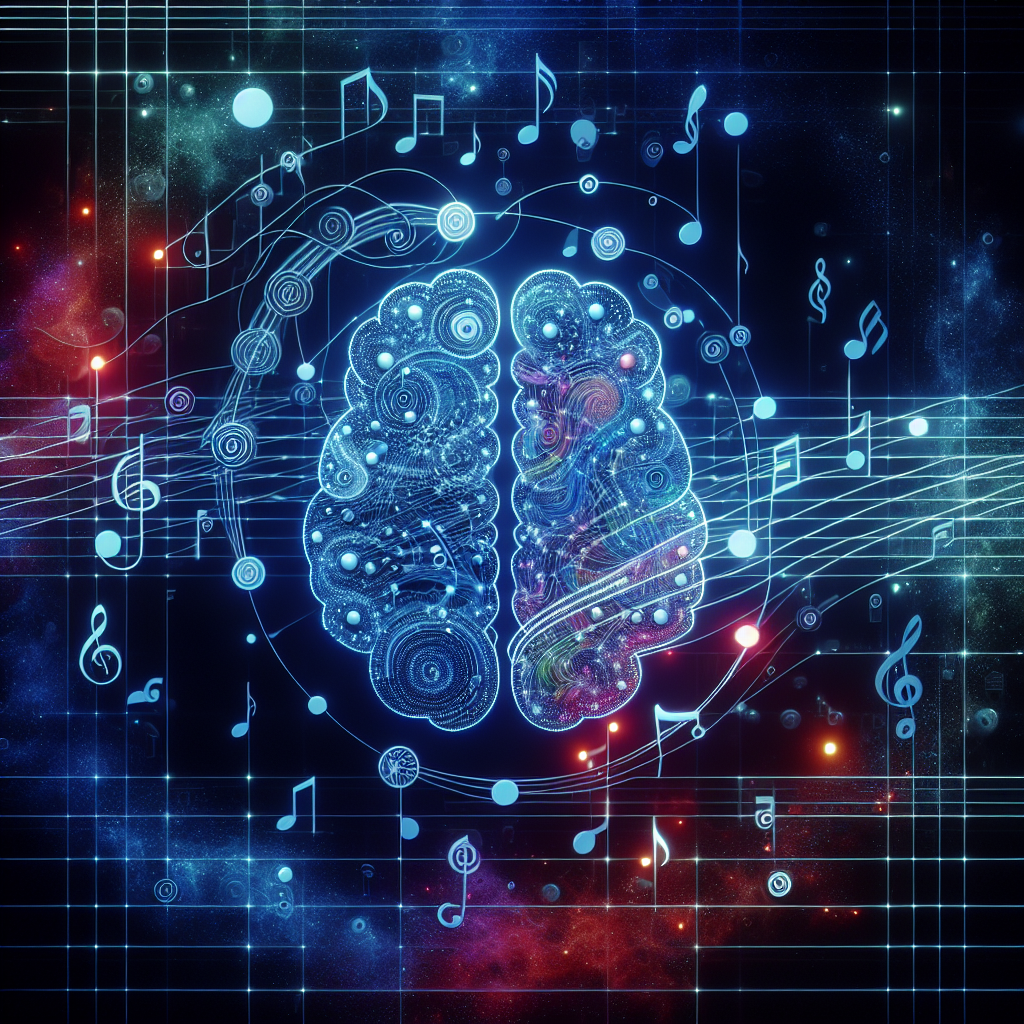In recent years, artificial intelligence has made significant advancements in various fields, including music creation. AI-driven music creation systems have been developed to compose, produce, and even perform music, leading to a new era in the world of music production. This technology has sparked a debate among musicians, producers, and music enthusiasts about the aesthetics of AI-driven music creation and its impact on the creative process.
Exploring the Aesthetics of AI-Driven Music Creation
AI-driven music creation systems use machine learning algorithms to analyze and generate music based on vast amounts of data. These systems can analyze existing music compositions, genres, and styles to create new and original pieces of music. AI can also mimic the characteristics of different instruments, voices, and genres, allowing for endless possibilities in music creation.
One of the key benefits of AI-driven music creation is its ability to generate music quickly and efficiently. AI systems can compose and produce music at a much faster pace than humans, allowing for rapid experimentation and iteration in the creative process. This speed and efficiency can be particularly useful for musicians and producers working on tight deadlines or looking to explore new musical ideas.
AI-driven music creation also offers a level of creativity and innovation that may not be possible with traditional methods. These systems can generate music that pushes the boundaries of traditional genres and styles, leading to the creation of unique and unconventional compositions. AI can also help musicians and producers break out of creative ruts by providing fresh perspectives and ideas for their music.
However, the aesthetics of AI-driven music creation have been a topic of debate among musicians and music enthusiasts. Some argue that AI-generated music lacks the emotional depth and human touch that is essential to music creation. They believe that music created by AI lacks the soul and authenticity that comes from human creativity and expression.
On the other hand, proponents of AI-driven music creation argue that these systems can enhance the creative process by providing new tools and techniques for musicians and producers. They believe that AI can be used as a collaborative tool to inspire and augment human creativity, rather than replace it. AI-driven music creation can also help democratize music production by making it more accessible to a wider range of creators.
FAQs about AI-Driven Music Creation
Q: Can AI-driven music creation systems replace human musicians and producers?
A: While AI-driven music creation systems can generate music quickly and efficiently, they cannot replace the creativity, emotion, and expression that human musicians and producers bring to the table. AI can be used as a tool to enhance and augment human creativity, rather than replace it entirely.
Q: How can musicians and producers incorporate AI-driven music creation into their creative process?
A: Musicians and producers can incorporate AI-driven music creation into their creative process by using it as a tool for inspiration, experimentation, and collaboration. AI systems can help generate new musical ideas, explore different genres and styles, and break out of creative ruts. By integrating AI into their workflow, musicians and producers can push the boundaries of their creativity and explore new possibilities in music production.
Q: What are the ethical implications of AI-driven music creation?
A: There are ethical implications to consider when using AI-driven music creation systems, particularly in terms of copyright, ownership, and authenticity. Musicians and producers should be mindful of the sources of data used by AI systems and ensure that they have the necessary rights to use and distribute the music generated. They should also consider how AI-generated music aligns with their artistic vision and values, and whether it accurately reflects their creative expression.
Q: How can AI-driven music creation systems benefit the music industry?
A: AI-driven music creation systems can benefit the music industry in various ways, including streamlining the music production process, expanding the creative possibilities for artists, and democratizing music production. These systems can help musicians and producers create music more efficiently, experiment with new ideas and styles, and reach a wider audience with their music. Overall, AI-driven music creation has the potential to revolutionize the music industry and open up new opportunities for creators.
In conclusion, the aesthetics of AI-driven music creation are a complex and multifaceted topic that continues to spark debate and discussion in the music industry. While AI systems can generate music quickly and efficiently, they cannot replace the creativity, emotion, and expression that human musicians and producers bring to the table. AI-driven music creation can be a valuable tool for musicians and producers to explore new ideas, styles, and genres, and push the boundaries of their creativity. By integrating AI into their workflow, musicians and producers can enhance their creative process and create music that is both innovative and authentic.

